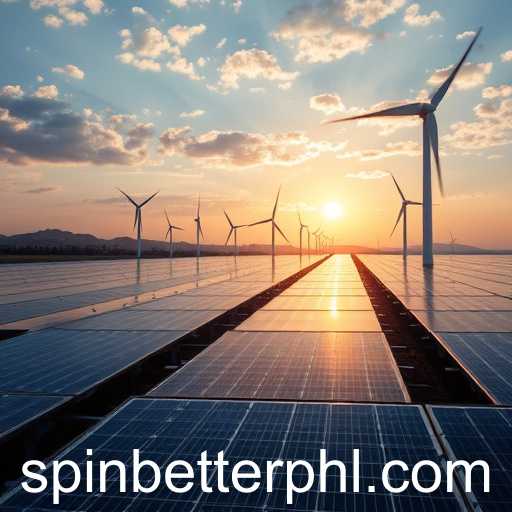
Advancements in Clean Energy Technology

In recent years, the global focus on clean energy has shifted from mere ambition to actionable projects and breakthroughs, propelling significant advancements in the field. 2025 emerges as a pivotal year for clean energy technology and innovation, highlighting remarkable strides in solar power efficiency, wind energy expansion, and battery storage capabilities.
At the forefront of this evolution is the significant reduction in solar panel costs, making solar energy more accessible than ever before. Technological enhancements have improved energy capture efficiency, allowing for greater energy production at reduced costs. Countries worldwide are heavily investing in solar farms, recognizing the potential not only for reducing carbon emissions but also for creating numerous jobs in installation and maintenance.
Wind energy technology has seen similar advancements, with higher capacity turbines and more efficient deployment technologies leading to increased adoption. Off-shore wind projects, in particular, are gaining momentum as developers navigate the engineering challenges associated with large-scale marine wind farms. These advancements are effectively expanding the reach and viability of wind energy, contributing to a significant percentage of national grids in several countries.
Innovation in battery technology is perhaps the most game-changing development in recent clean energy history. High-capacity, long-life battery storage solutions can now store vastly more energy than before, addressing one of renewable energy’s biggest challenges: intermittency. The ability to save excess energy generated during peak production times and distribute it when demand is higher underscores remarkable future opportunities for sustained energy reliability.
Sustainability and environmental impact also remain central tenets of clean energy dialogues, influencing global policy shifts and corporate strategies. Many industries are setting aggressive targets to reduce their carbon footprints, and governments offer incentives for clean energy projects. These dynamics contribute to a positive feedback loop, wherein increased demand for sustainable solutions drives greater investment in research and development, resulting in further innovations.
The 2025 economic landscape is also largely defined by clean energy dynamics. Transitioning to a green economy opens new markets and growth opportunities, reshaping labor markets. Industries not previously associated with energy production are reshaping themselves to leverage renewable technologies, from agriculture weaving solar tech into farming practices to urban planners incorporating energy-efficient designs.
An overarching theme of interconnectedness defines this innovative era. The technological revolution driven by advancements in clean energy not only enhances the global economy but also cultivates a shared responsibility towards environmental preservation and sustainability. As these technologies continue to evolve, the commitment to an environmentally sustainable future remains a beacon for policy-makers and industries alike, steering the world towards a cleaner, more resilient tomorrow.
The Surge of SpinBetter in the English Gaming Landscape
SpinBetter emerges as a pivotal platform reshaping the online gaming experience by integrating immersive technology with traditional gaming elements.
The Rise of Online Gaming in 2025
Exploring how online gaming platforms like SpinBetter are transforming the gaming landscape in 2025.
Exploring the Rise of SpinBetter in the UK Market
The article delves into the rapid growth and appeal of the SpinBetter website in the UK online gaming market.
 Skip to content
Skip to content





